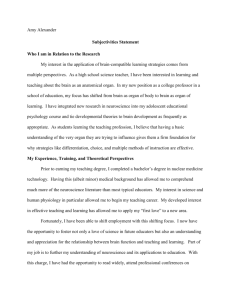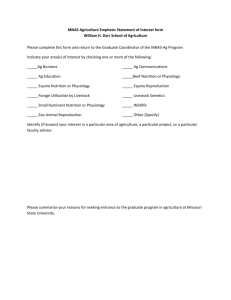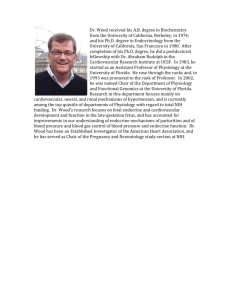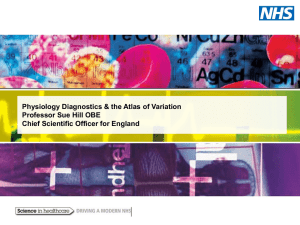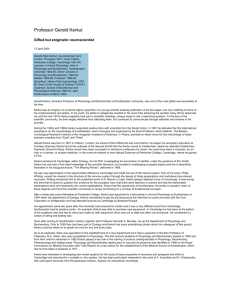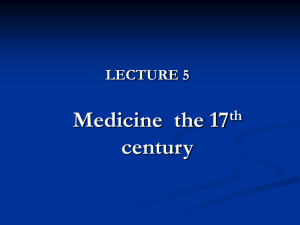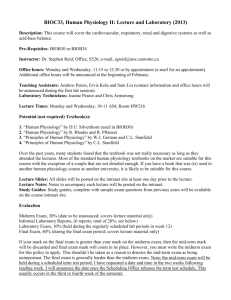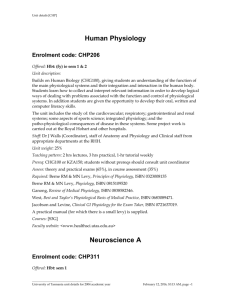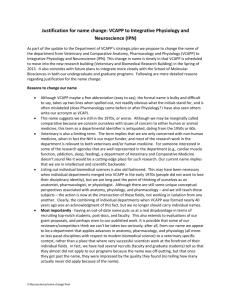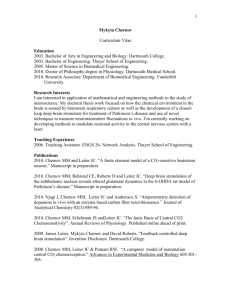Physiology and Neuroscience - Department of Biological Science
advertisement
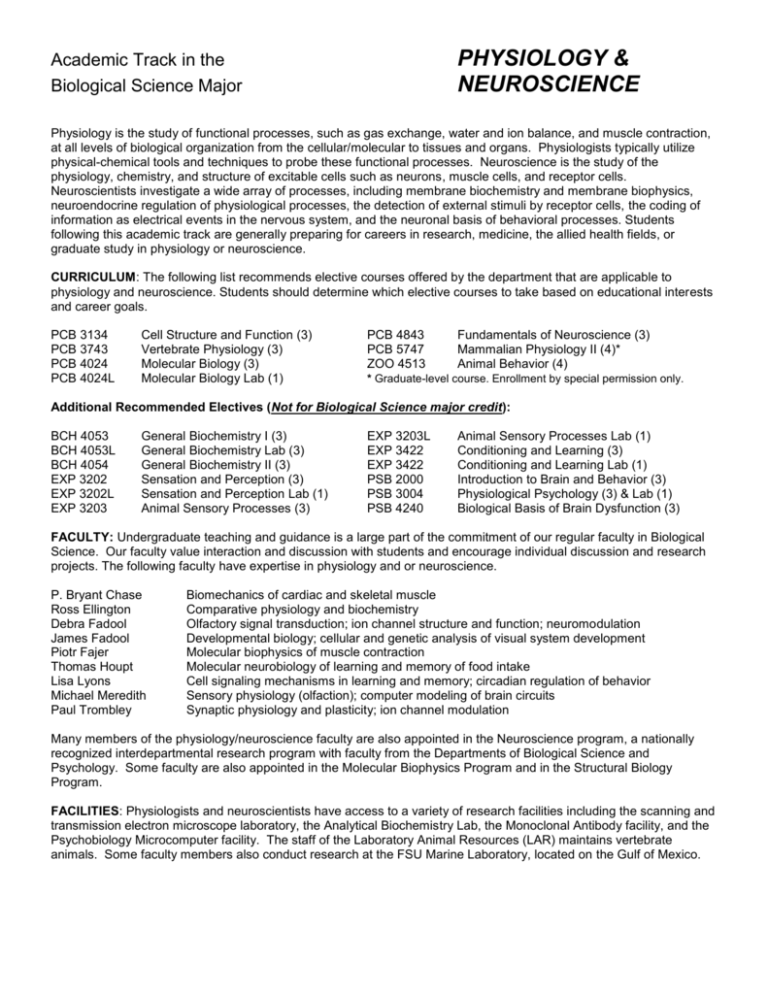
PHYSIOLOGY & NEUROSCIENCE Academic Track in the Biological Science Major Physiology is the study of functional processes, such as gas exchange, water and ion balance, and muscle contraction, at all levels of biological organization from the cellular/molecular to tissues and organs. Physiologists typically utilize physical-chemical tools and techniques to probe these functional processes. Neuroscience is the study of the physiology, chemistry, and structure of excitable cells such as neurons, muscle cells, and receptor cells. Neuroscientists investigate a wide array of processes, including membrane biochemistry and membrane biophysics, neuroendocrine regulation of physiological processes, the detection of external stimuli by receptor cells, the coding of information as electrical events in the nervous system, and the neuronal basis of behavioral processes. Students following this academic track are generally preparing for careers in research, medicine, the allied health fields, or graduate study in physiology or neuroscience. CURRICULUM: The following list recommends elective courses offered by the department that are applicable to physiology and neuroscience. Students should determine which elective courses to take based on educational interests and career goals. PCB 3134 PCB 3743 PCB 4024 PCB 4024L Cell Structure and Function (3) Vertebrate Physiology (3) Molecular Biology (3) Molecular Biology Lab (1) PCB 4843 PCB 5747 ZOO 4513 Fundamentals of Neuroscience (3) Mammalian Physiology II (4)* Animal Behavior (4) * Graduate-level course. Enrollment by special permission only. Additional Recommended Electives (Not for Biological Science major credit): BCH 4053 BCH 4053L BCH 4054 EXP 3202 EXP 3202L EXP 3203 General Biochemistry I (3) General Biochemistry Lab (3) General Biochemistry II (3) Sensation and Perception (3) Sensation and Perception Lab (1) Animal Sensory Processes (3) EXP 3203L EXP 3422 EXP 3422 PSB 2000 PSB 3004 PSB 4240 Animal Sensory Processes Lab (1) Conditioning and Learning (3) Conditioning and Learning Lab (1) Introduction to Brain and Behavior (3) Physiological Psychology (3) & Lab (1) Biological Basis of Brain Dysfunction (3) FACULTY: Undergraduate teaching and guidance is a large part of the commitment of our regular faculty in Biological Science. Our faculty value interaction and discussion with students and encourage individual discussion and research projects. The following faculty have expertise in physiology and or neuroscience. P. Bryant Chase Ross Ellington Debra Fadool James Fadool Piotr Fajer Thomas Houpt Lisa Lyons Michael Meredith Paul Trombley Biomechanics of cardiac and skeletal muscle Comparative physiology and biochemistry Olfactory signal transduction; ion channel structure and function; neuromodulation Developmental biology; cellular and genetic analysis of visual system development Molecular biophysics of muscle contraction Molecular neurobiology of learning and memory of food intake Cell signaling mechanisms in learning and memory; circadian regulation of behavior Sensory physiology (olfaction); computer modeling of brain circuits Synaptic physiology and plasticity; ion channel modulation Many members of the physiology/neuroscience faculty are also appointed in the Neuroscience program, a nationally recognized interdepartmental research program with faculty from the Departments of Biological Science and Psychology. Some faculty are also appointed in the Molecular Biophysics Program and in the Structural Biology Program. FACILITIES: Physiologists and neuroscientists have access to a variety of research facilities including the scanning and transmission electron microscope laboratory, the Analytical Biochemistry Lab, the Monoclonal Antibody facility, and the Psychobiology Microcomputer facility. The staff of the Laboratory Animal Resources (LAR) maintains vertebrate animals. Some faculty members also conduct research at the FSU Marine Laboratory, located on the Gulf of Mexico.
